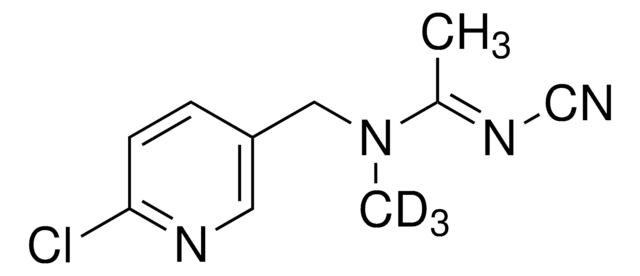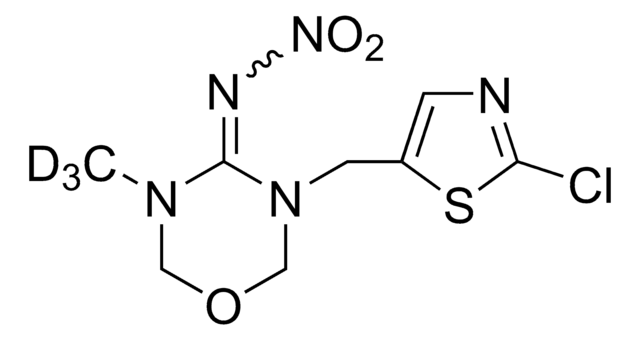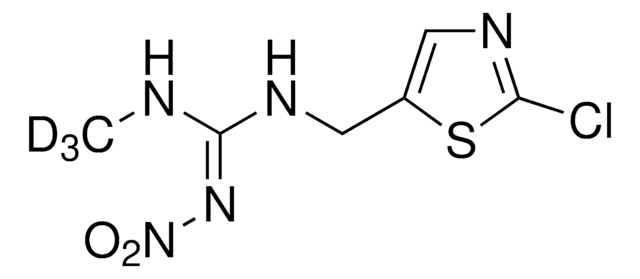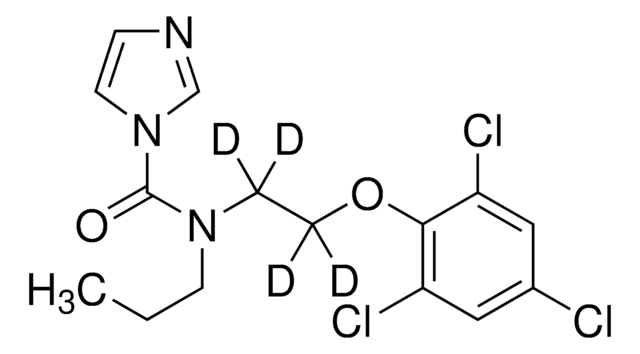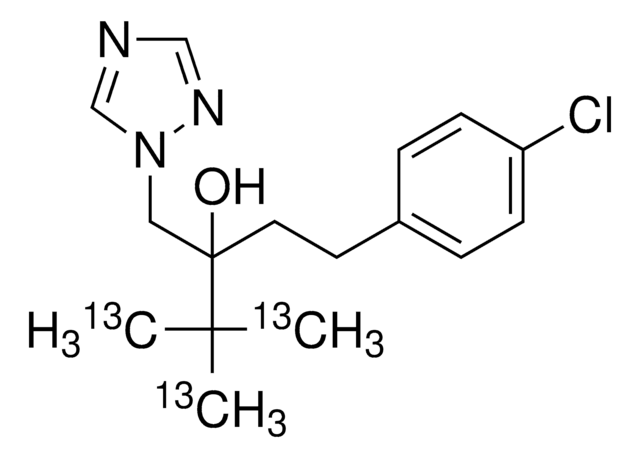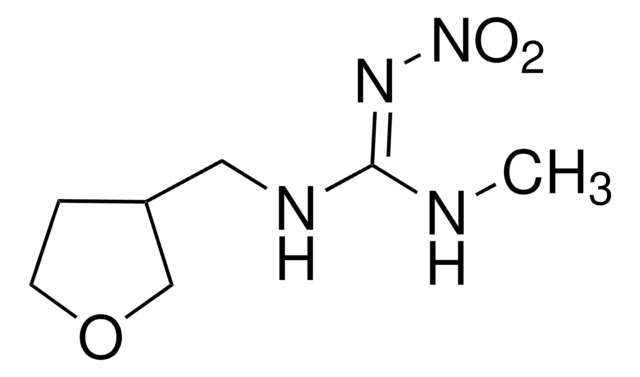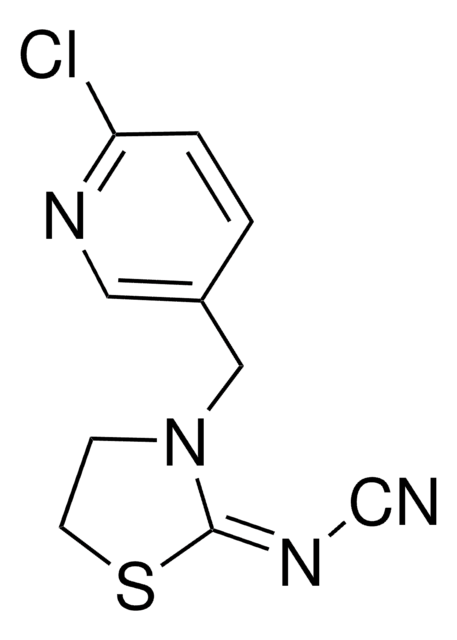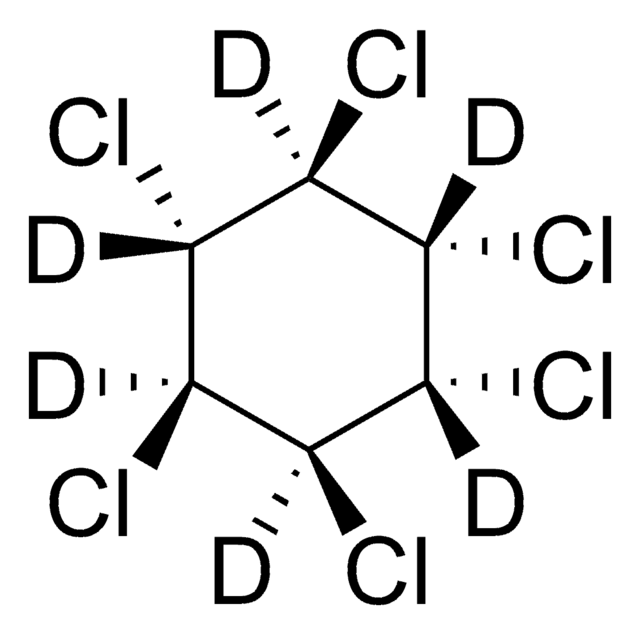30673
Thiacloprid-(thiazolidin ring-d4)
PESTANAL®, analytical standard
Synonym(s):
Thiacloprid-d4, [3-(6-Chloro-3-pyridinylmethyl)-2-thiazolidin-d4-ylidene]cyanamide
About This Item
Recommended Products
grade
analytical standard
Quality Level
isotopic purity
≥95 atom % D
product line
PESTANAL®
Assay
≥98.0% (HPLC)
shelf life
limited shelf life, expiry date on the label
application(s)
agriculture
format
neat
SMILES string
ClC1=CC=C(CN2C([2H])([2H])C([2H])([2H])S/C2=N\C#N)C=N1
General description
Legal Information
Not finding the right product?
Try our Product Selector Tool.
Signal Word
Danger
Hazard Statements
Precautionary Statements
Hazard Classifications
Acute Tox. 3 Oral - Acute Tox. 4 Inhalation - Aquatic Acute 1 - Aquatic Chronic 1 - Carc. 2 - Repr. 1B - STOT SE 3
Target Organs
Central nervous system
Storage Class Code
6.1C - Combustible acute toxic Cat.3 / toxic compounds or compounds which causing chronic effects
WGK
WGK 3
Flash Point(F)
Not applicable
Flash Point(C)
Not applicable
Regulatory Listings
Regulatory Listings are mainly provided for chemical products. Only limited information can be provided here for non-chemical products. No entry means none of the components are listed. It is the user’s obligation to ensure the safe and legal use of the product.
EU REACH Annex XVII (Restriction List)
Choose from one of the most recent versions:
Already Own This Product?
Find documentation for the products that you have recently purchased in the Document Library.
Protocols
Learn more about Neonicotinoids - active substances used in plant protection products to control harmful insects.
On Friday, April 27, 2018, the European Union decided to ban the use of three neonicotinoid insecticides from use on field crops, having deemed them dangerous to bees. This application demonstrates the analysis of these banned compounds and others from dandelion blossoms using QuEChERS and LC-MS.
Our team of scientists has experience in all areas of research including Life Science, Material Science, Chemical Synthesis, Chromatography, Analytical and many others.
Contact Technical Service